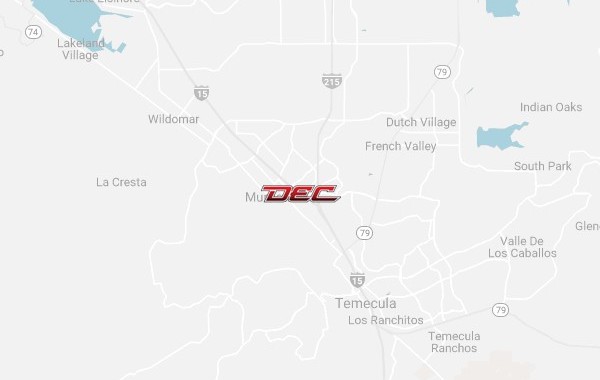As a homeowner, it’s crucial to prioritize and maintain the safety and performance of your electrical system. One essential aspect of home electrical maintenance is scheduling annual inspections to ensure your system functions safely and efficiently.
We’ll delve into why annual inspections are vital and explore key areas of focus during an inspection, including electrical panels, outlets, and wiring. We’ll also discuss the benefits of hiring a licensed electrician for your inspection and how to prepare for an impending inspection. Direct Electric Company’s mission is to equip you with the knowledge and understanding necessary to ensure your home’s electrical system’s continued safety, efficiency, and compliance.
Join us as we uncover the importance of annual residential electrical inspections, providing you with expert insights and practical tips. Let’s get started.
The Importance of Annual Residential Electrical Inspections
Why Annual Electrical Inspections are Crucial
Annual residential electrical inspections serve as a proactive approach to maintaining the safety and efficiency of your home’s electrical system. Regular inspections can:
1. Prevent Potential Electrical Hazards: Inspections help identify issues like faulty wiring or overloaded circuits before they become significant dangers, such as electrical fires or power surges.
2. Ensure Code Compliance: Electrical codes and regulations are continually updated. An annual inspection guarantees that your electrical system adheres to current safety standards.
3. Prolong the Lifespan of Your Electrical System: Identifying and resolving issues before they escalate can extend the life of your electrical components, saving you time and money in the long run.
4. Enhance Energy Efficiency: By pinpointing areas of inefficiency, an inspection can help optimize your electrical system’s performance and reduce energy consumption.
Key Areas of Focus During an Inspection
During a residential electrical inspection, key areas of focus include:
1. Electrical Panel: The inspector will examine your electrical panel for issues such as improper grounding, damaged breakers, or signs of overload. They will also evaluate whether your panel suits your property’s current power requirements.
2. Wiring: Inspectors will check for any damaged, frayed, or exposed wiring throughout your home. They will also confirm if your wiring is up-to-date with current safety standards.
3. Outlets and Switches: The inspection includes testing outlets for proper grounding and ensuring that GFCI (Ground Fault Circuit Interrupter) outlets are installed in required areas, such as bathrooms and kitchens.
4. Smoke and Carbon Monoxide Detectors: Inspectors will verify that detectors are functioning correctly and are installed in the appropriate locations.
5. Lighting: The inspector will evaluate your lighting fixtures for potential hazards and may recommend energy-efficient alternatives, such as LED bulbs.
Hiring a Licensed Electrician for Your Inspection
Although homeowners may be tempted to perform their own inspections, hiring a licensed electrician provides several benefits:
1. Comprehensive Knowledge of Electrical Codes: Licensed electricians possess up-to-date knowledge of electrical codes and regulations, ensuring your inspection is accurate and comprehensive.
2. Expertise in Identifying and Resolving Issues: Skilled electricians can quickly spot problems that an inexperienced homeowner may overlook. They can also effectively resolve any identified issues.
3. Safety Assurance: Working with electricity can be dangerous if not handled correctly. Licensed electricians possess the necessary skills and equipment to ensure a safe inspection process.
4. Documentation and Certification: A licensed electrician can provide documentation of your inspection and any repairs made, which can be valuable for insurance purposes or future property transactions.
Preparing for Your Electrical Inspection
To ensure a smooth and efficient inspection process, follow these preparation steps:
1. Clear Access to Electrical Components: Ensure that the technician has easy access to your electrical panel, outlets, and switches by removing any obstructions, such as furniture or stored items.
2. Test GFCI Outlets: Before the inspection, test your GFCI outlets by pressing the “test” and “reset” buttons, ensuring they function correctly.
3. Gather Documentation: Have any paperwork related to previous inspections, repairs, or installations available for the inspector to review.
4. Create a List of Concerns: Document any issues you’ve encountered, such as flickering lights, frequent breaker trips, or periodically non-functional outlets, and share this information with your inspector.
5. Be Present During the Inspection: Although not required, being present during the inspection allows you to ask questions and better understand any issues identified.
Understanding the Results of Your Inspection
Once your annual residential electrical inspection is complete, it’s essential to comprehend the results thoroughly. A licensed electrician should provide you with a detailed report outlining any identified issues, necessary repairs, or recommended upgrades.
Take the time to discuss the findings with your inspector, asking questions to ensure you understand the implications of any problems raised. Additionally, inquire about potential energy-saving improvements, such as LED lighting or smart home technologies.
Don’t delay prioritizing any needed repairs or upgrades indicated in the inspection report. This prompt action can help ensure the continued safety and efficiency of your home’s electrical system.
The Value of Regular Electrical Inspections for Your Home
Annual residential electrical inspections play a pivotal role in maintaining your home’s electrical system’s safety, efficiency, and longevity. By understanding the importance of these inspections and partnering with a licensed electrician, you can proactively address any issues and optimize your home’s energy usage. At Direct Electric Company, we are committed to providing exceptional service and expert guidance for all your residential electrical needs.
Don’t wait—schedule your annual residential electrical inspection today and experience the peace of mind from knowing your home’s electrical system is functioning safely and efficiently. Reach out to us now and let our experienced professionals help you protect your home and optimize your electrical system.







